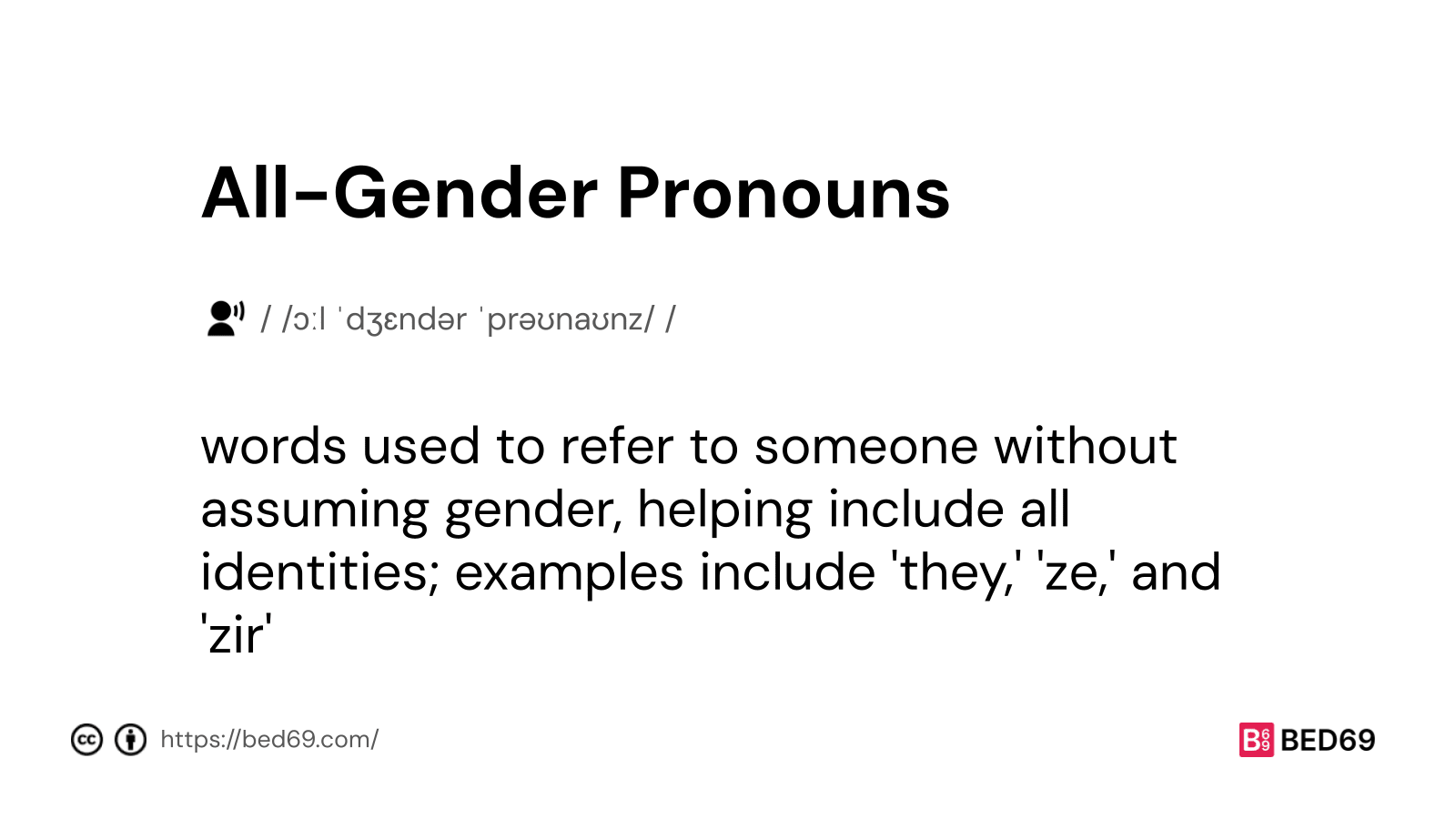What is All-Gender Pronouns?
All-Gender Pronouns are words that are not linked to a specific gender. They are used to refer to someone without assuming if they are male or female. These pronouns help include all gender identities and can be ‘they’ instead of ‘he’ or ‘she,’ or ‘ze’ and ‘zir’ as alternatives.
All-Gender Pronouns pronunciation: / ɔːl ˈdʒɛndər ˈprəʊnaʊnz /

Why are All-Gender Pronouns important
All-gender pronouns are crucial for respecting and acknowledging diverse gender identities. By using pronouns like ‘they’ or ‘ze,’ we create a more inclusive environment for everyone, irrespective of their gender identity. These pronouns help individuals feel seen and validated, especially for those who do not conform to traditional gender norms. Embracing all-gender pronouns fosters a sense of acceptance and understanding for people who may not fit within the binary framework of ‘he’ or ‘she.’
By incorporating all-gender pronouns into everyday language, we contribute to a more welcoming and affirming society where everyone’s identity is valued. These pronouns play a significant role in affirming a person’s gender identity and expression, promoting diversity, and challenging societal norms around gender. In a world where gender is not limited to just male or female, using all-gender pronouns is a simple yet powerful way to show respect and support for all individuals, regardless of how they identify.
How can we normalize All-Gender Pronouns usage
To normalize all-gender pronouns, it’s essential to promote education and awareness. Encouraging respectful conversations and providing resources can help individuals understand and use these pronouns correctly. Introducing pronoun sharing in introductions and email signatures can create a welcoming environment for all gender identities.
Additionally, incorporating all-gender pronouns in official documents and forms can signal inclusivity and acceptance. Embracing mistakes as learning opportunities fosters a culture of understanding and support. By practicing and normalizing the use of all-gender pronouns in everyday interactions, we contribute to a more inclusive and compassionate society.
Explore other interesting terms:
